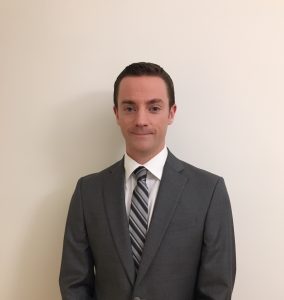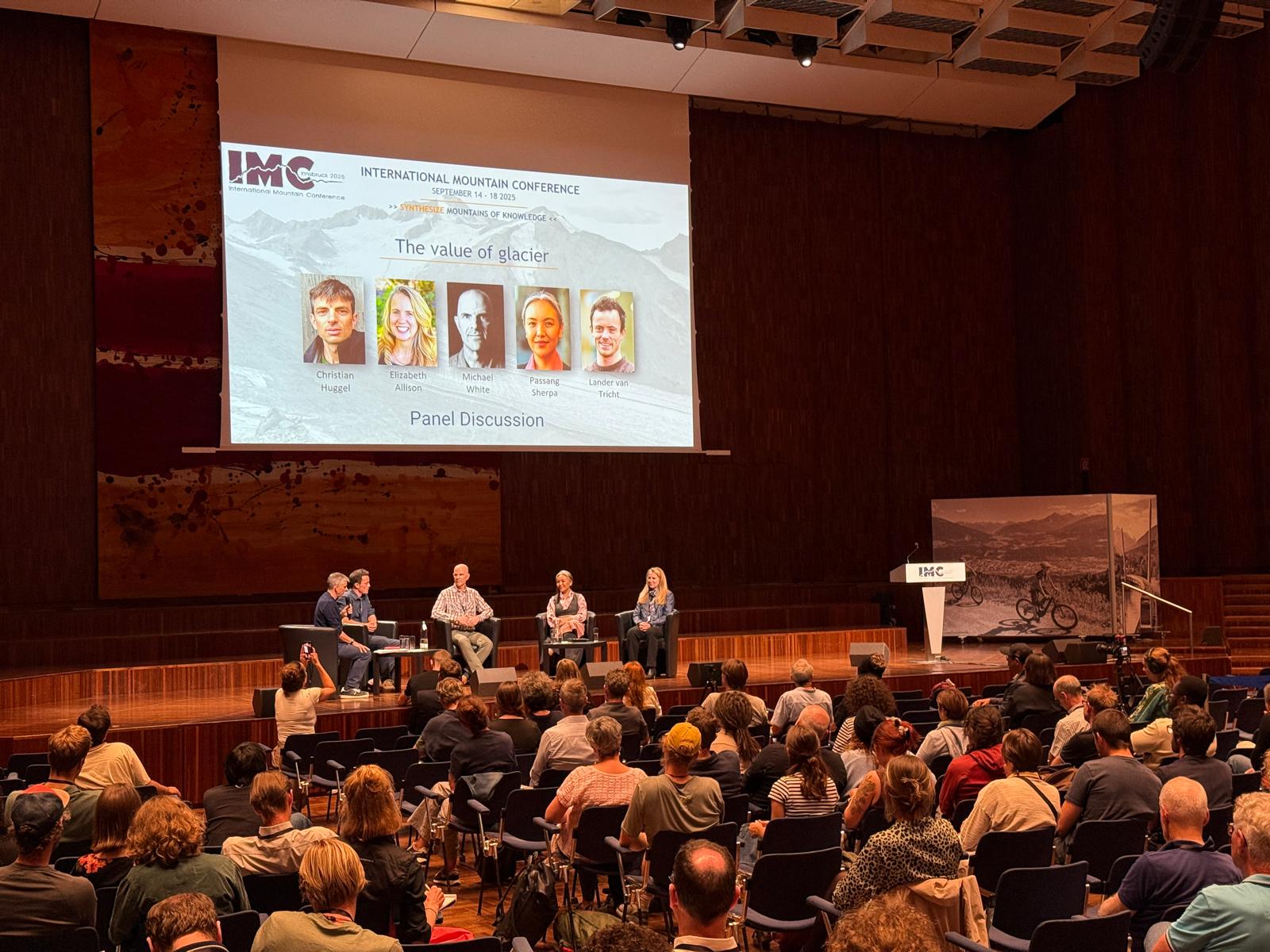The Alumni Spotlight is an interview series where we interview Asia Studies alumni about their career paths, how they became interested in Asian Studies and for any advice that would be useful to our students. This interview features James Mutter, BA ’05 in Japanese Language and International Relations. Mr. Mutter is currently Vice-Consul at the Consulate General of Canada in Hong Kong.


Tell us a little about yourself, your background and how you became interested in Asian Studies?
I grew up in Vancouver and first travelled to Japan on a two-week high school exchange program. My experiences on the trip are what originally sparked my interest in Japan. Following the trip, I switched my second language from French to Japanese and wrote the Japanese provincial exam. After high school, I participated in the IEC working-holiday program and worked in Shiga and Kyoto Prefectures for a year, first teaching English, then working in a youth hostel. When I entered UBC a year later, I knew I wanted to focus on Japanese and Asian studies. UBC has numerous partnership agreements with universities across Asia, which, along with generous scholarships, allowed me to spend second year studying at Waseda University in Tokyo. At Waseda, I was able to further my studies in the Japanese language, as well as in Japanese history and politics. I returned to UBC for the last two years of my degree having gained a different perspective and new appreciation of the subjects.
While a student, was there anything you did to get ahead with your career? Or anything that you would recommend that other students do?
I would certainly recommend students spend at least one semester, if not a full year on exchange in their country/region of interest. Not only does this allow students to learn directly from local professors and get a firsthand look at the issues important to that country, but it also provides excellent opportunities for creating a network of likeminded students from around the world. Although I didn’t participate in the Co-op program, this is another great way to get exposure to industries of interest and the program often leads to employment following graduation. I did get involved with student academic journals both as a contributor and a member of the editorial board. There are UBC journals for most disciplines, whether it be history, politics, or international relations, so if academic writing is of interest, these journals are a great starting point for acquiring skills and potentially launching a career in professional writing. There are also various cultural groups both on and off campus that offer students volunteer opportunities.
How did you get your first “adult” job after graduating? Was it a simple transition?
I was keen to return to Japan following graduation and work in the Japanese language, so at the start of fourth year, I began preparing my application for the Japan Exchange and Teaching Program (JET). Since I had already invested significant time in studying Japanese, I was not interested in teaching English and instead applied for the Coordinator for International Relations (CIR) position also offered through the program. Two of my teachers from the Asian Studies Department provided me with reference letters and the interview was conducted at the Japanese Consulate in Vancouver. I was placed in a municipal office on the northern island of Hokkaido and was directly involved in the city’s foreign relations as well as official translations. Although it was my first “adult” job and I had a lot to learn about both Japanese culture and office culture, my colleagues were very patient and accommodating, which made the transition easier. Through translation and interpretation duties, I was able to get exposure to various different professions by being put directly in the middle of conversations between the Mayor and Ambassadors, delegation members, musicians and athletes.
After your first job, how did your career progress and what are you currently doing?
I was very lucky in the sense that Japan offered me various opportunities to try out jobs in different industries. The key to gaining these opportunities was proficiency in the Japanese language and networking. While on the JET program, I volunteered as editor of the monthly Canadian JET program newsletter that was sent out to all 700 Canadian JET program participants via the Canadian Embassy in Tokyo. Following the program, I interned at the Embassy in the commercial section for a summer. After the internship, I took up a position with the Japanese tourism board in Hokkaido and became deeply involved in inbound tourism development. The job took me frequently to Australia and the UK for ski tourism promotion as well as to South East Asia for general tourism promotion. Through this position, I was able to develop skills in marketing, media relations, and contract negotiation. It also allowed me to continue writing, as there were plenty of opportunities to provide content to travel magazines, tourism brochures and web sites.
Following my time at the tourism board, I was asked to work for Japan’s largest hotel and resort chain headquartered in Tokyo, where I continued to perform marketing and business development functions, only this time for regions in which the company was present. We were also able to work with UBC to offer a Co-op position to a student at one of our ski resorts during the winter.
After a total of eight years in Japan, I moved to Taiwan where I began learning Mandarin and continued working in the business development and marketing sphere. During this time, I also became involved in the Canadian Chamber of Commerce in Taiwan, which was an excellent way to get to know prominent Canadians actively contributing to the local community. Around this time, I decided to apply for the foreign service and wrote the Post-Secondary Recruitment test at our trade office. I was later invited to an interview in Hong Kong, and after a yearlong process, was called back to Ottawa to begin training.
What do you enjoy about your current job?
I enjoy the international aspect of the job and seeing the direct impact our programs have both on Canada and the regions in which we work.
Are there opportunities for recent graduates in your industry? What does a typical entry-level position entail?
There are certainly lots of entry level positions in government, which can begin with a Co-op or FSWAP placement during university. These placements provide exposure to the office environment and government work culture. In terms of the foreign service, the recruitment process can be quite long, so I would recommend preparing in advance and perhaps working simultaneously on a plan B – i.e. taking on another job while waiting. Recruits come from various backgrounds, some with master’s degrees, some without, some recently graduated, and some with years of work experience, as was my case.
Has learning an Asian language helped you in your personal or professional life? What tips do you have for students who are keen to play the ‘language card’ in their career development?
Definitely! All my past jobs were based largely on my ability to speak either Japanese or Mandarin, which provided me with lots of interesting work opportunities. Some of my most memorable experiences using Japanese were in roles as an interpreter, such as for the Japanese broadcasts at the Vancouver Winter Olympics, for press trip and delegation visits to Ainu communities as well as spending three days with an Ainu community leader for a story with Lonely Planet Magazine, and assisting the City of Kyoto with tourism promotion in Australia by escorting a Geisha and two Maiko to tourism related events. However, the most rewarding aspect of having studied Asian languages was getting to actively participate in and learn from local communities, which wouldn’t have been possible without the languages. I have heard a lot of students say that they only want to learn to speak a foreign language, but if students are hoping to play the “language card”, particularly in an office environment, they will need to be able to read and write. Speaking can only get you so far. Most work today is done on a computer, so students don’t need to worry too much about writing by hand, but they need to be able to type and navigate a computer in the local language, as they will likely be spending the majority of their time writing emails and reports. It is also important to be on the ground in the country of interest and able to easily attend interviews. University exchange programs create excellent opportunities to make key contacts and the IEC working holiday program allows Canadian youth to legally be on the ground in a partner country seeking and accepting job offers, and in some cases, taking brush up courses in the local language.
Do you have any other advice that you would like to impart to students and/or recent graduates?
The most difficult part of relocating to another country or region is quickly building up a professional network, which is key to discovering job leads and potential mentors. I would encourage graduates to consider joining Canadian related groups or organizations overseas such as the UBC alumni or the Canadian Chamber of Commerce. Depending on the country, there may also be a historical society or “Canadian Club”. Other informal groups such as sports teams or social hobby groups are another option and can often be found on social media. For me, joining a hockey team has been a great way to quickly establish a network in Japan, Taiwan, and now Hong Kong and has been a lot of fun at the same time. I think most people would be surprised at the number of activities they are able to find by performing a quick search on their interests in another country. These activities help with orientation, building a network, and reducing the effects of homesickness.


